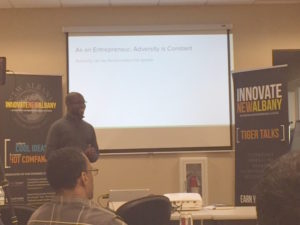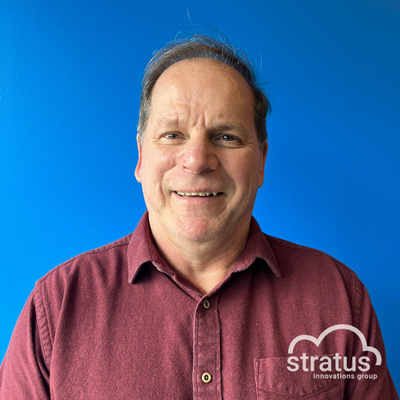Adversity is a constant in both our personal and professional lives, but having the skills to overcome adversity and build resilience can contribute to a strong, successful business.
David Amaya is an independent consultant who studied the University of 
TIGER Talks educate business owners on the topics of Technology, Innovation, Growth, Entrepreneurship and Responsibility. They are offered free of charge throughout each month in an effort to help entrepreneurs “earn their stripes” toward starting and running a successful business.
David’s presentation detailed the five elements of the training program’s “Well-Being” Theory, which form the acronym “PERMA” – positive emotion, engagement, relationships, meaning and accomplishment.
David said that not all traumas or failures lead to post traumatic stress disorder. Alternatively, traumas and failures can lead to post-traumatic growth, where an individual becomes stronger after the trauma. Elements that contribute to post traumatic growth are anxiety reduction, constructive self-disclosure, creating a trauma narrative and articulating life principles.
The Army Master Resilience Training program states that building mental toughness comes from mastering the following seven skills:
-
Learning your ABCs.
ABCs stand for adversity, beliefs and consequences. You’ll need to understand what pushes your buttons, your in-the-moment beliefs, and your feelings and behaviors.
-
Avoiding thinking traps.
Thinking traps include jumping to conclusions, tunnel vision, magnifying and minimizing, and personalizing. David offered several questions to ask yourself to avoid the thinking traps.
-
Detecting icebergs.
Icebergs are the deep beliefs that interfere with your ability to respond effectively to adversity. To identify them, you must examine the connection between your beliefs and consequences.
-
Challenging beliefs.
Once you’ve identified your beliefs, ask yourself if it’s meaningful, accurate in the given situation, overly rigid, or useful.
-
Putting it in perspective.
Minimize your catastrophic thinking by considering the probability of your worst-case fears, the best-case alternatives, and the most likely outcomes. Then problem solve for the most likely outcomes.
-
Calming and focusing.
Use techniques such as controlled breathing, progressive muscle relaxation and positive imagery to quiet your emotions, focus your thoughts and reduce stress.
-
Real-time resilience.
Combating counterproductive beliefs by exploring alternatives, uncovering evidence and identifying more likely implications.
David referred to the books Flourish – A Visionary New Understanding of Happiness and Well-Being by Martin E.P. Seligman and The Resilience Factor by Karen Reivich for more information and reference.
If you have additional questions about the presentation or his perspective on the Army Master Resilience Training, contact David at TheDave@DavidAmayaHB.com.






